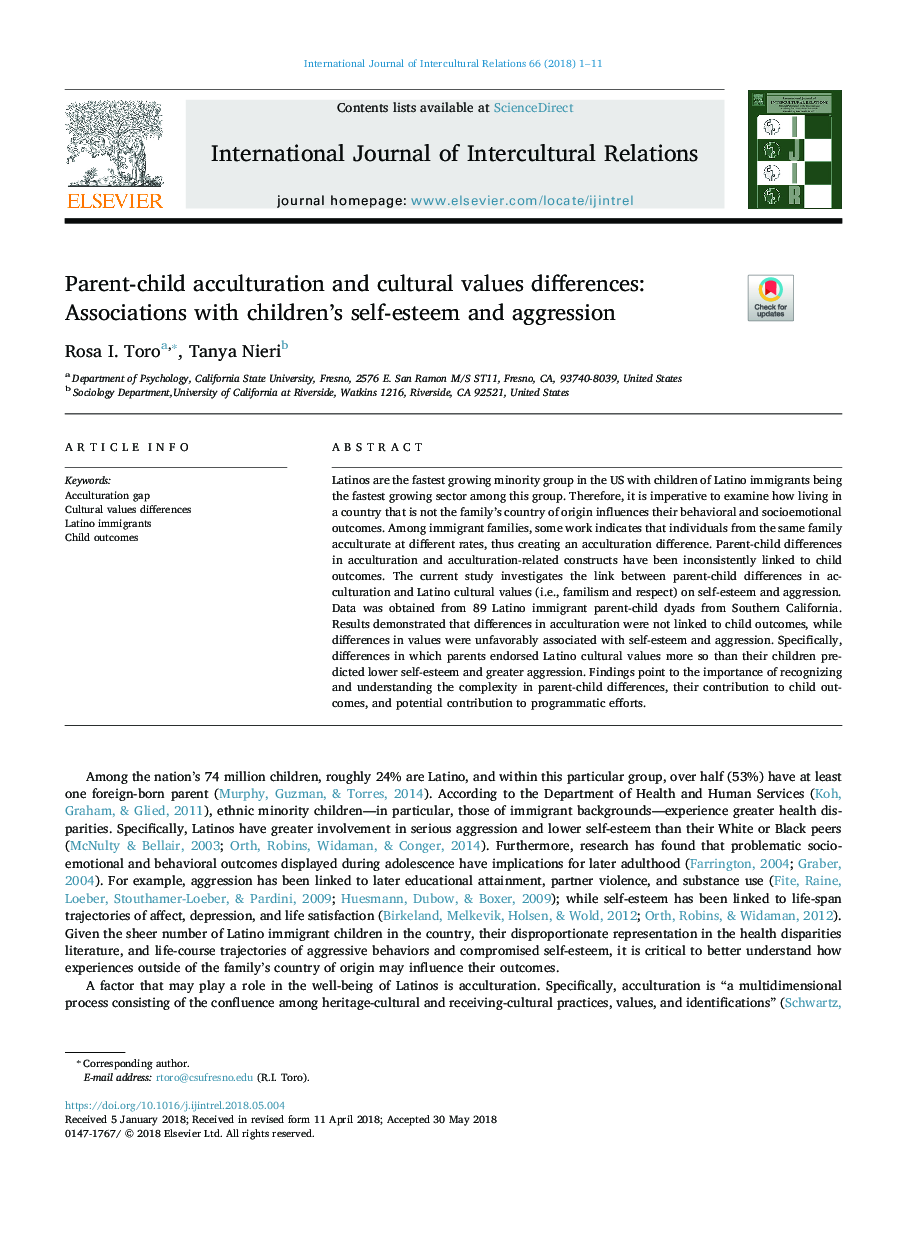| Article ID | Journal | Published Year | Pages | File Type |
|---|---|---|---|---|
| 7323586 | International Journal of Intercultural Relations | 2018 | 11 Pages |
Abstract
Latinos are the fastest growing minority group in the US with children of Latino immigrants being the fastest growing sector among this group. Therefore, it is imperative to examine how living in a country that is not the family's country of origin influences their behavioral and socioemotional outcomes. Among immigrant families, some work indicates that individuals from the same family acculturate at different rates, thus creating an acculturation difference. Parent-child differences in acculturation and acculturation-related constructs have been inconsistently linked to child outcomes. The current study investigates the link between parent-child differences in acculturation and Latino cultural values (i.e., familism and respect) on self-esteem and aggression. Data was obtained from 89 Latino immigrant parent-child dyads from Southern California. Results demonstrated that differences in acculturation were not linked to child outcomes, while differences in values were unfavorably associated with self-esteem and aggression. Specifically, differences in which parents endorsed Latino cultural values more so than their children predicted lower self-esteem and greater aggression. Findings point to the importance of recognizing and understanding the complexity in parent-child differences, their contribution to child outcomes, and potential contribution to programmatic efforts.
Keywords
Related Topics
Social Sciences and Humanities
Business, Management and Accounting
Business and International Management
Authors
Rosa I. Toro, Tanya Nieri,
